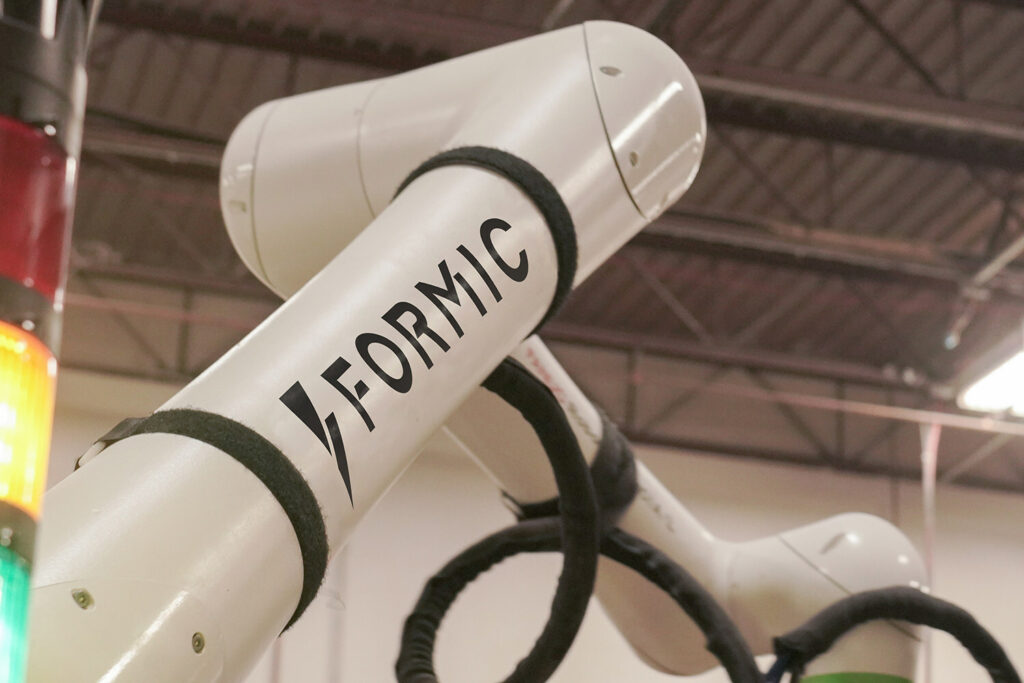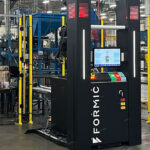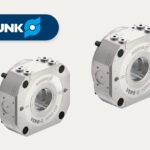ASIA ELECTRONICS INDUSTRYYOUR WINDOW TO SMART MANUFACTURING
Jacobi Robotics, Formic Team Up on AI-Powered Robotics
Jacobi Robotics, a new company pioneering AI-driven motion planning for robot systems, and Formic, a leading robotics-as-a-service provider accelerating the adoption of automation across American manufacturing, unveiled a strategic partnership to bring high-performance AI-powered robotics to manufacturers. Specifically, Jacobi’s technology empowers robot solution providers like Formic to program and deploy the next wave of automation technology in less than one day. This compares to one month with existing tools, setting a new benchmark for operational efficiency.
Initially, the Jacobi-Formic alliance targets robotic palletizers that stack cases onto pallets for storage or shipment. More than $400 billion worth of American trade is exported annually on pallets. However, the physically demanding task of manual palletizing is the leading cause of worker compensation claims in the manufacturing sector. This challenge, coupled with a daunting labor shortage, drives the growing demand and deployment of robotic palletizers.
Speeds up Robotics Deployment
Mainly, traditional robotic systems take weeks or months to deploy. However, Jacobi’s software platform abstracts and streamlines the palletizing programming process with AI-powered motion planning. The accuracy and flexibility of the AI model progressed quickly through Formic’s vast experience and data from previous robotic deployments. This results in the deployment of less than one day, a 20% increase in robot productivity. Also, this results in improvements in the reliability of Formic’s array of accessible robot solutions. Formic and Jacobi have already deployed the technology to U.S. manufacturers. Moreover, a strategic roadmap is in place to broaden its application to additional use cases soon.
Conventionally, industrial robots have been limited to following precise movements repetitively. However, the last decade’s software innovations have significantly relaxed these constraints; thus, helping them respond to complex and changing environments. Yet, despite these advancements, the reliability and accessibility of such technology have not kept pace. Thus, it leaves a substantial gap in automation adoption due to prohibitive costs. This partnership aims to bridge that gap. Specifically, it aims to ensure advanced robotic capabilities are within reach for a broader spectrum of manufacturing use cases.

“The collaboration with Jacobi is a pivotal moment for Formic as we strive to democratize access to robotics and automation in manufacturing,” says Saman Farid, CEO and co-founder of Formic. “There are a multitude of robotics and AI companies making bold claims. However, Jacobi is one of the few that actually delivers on their promises. Integrating Jacobi’s sophisticated software with our RaaS model eliminates long-standing barriers to automation. It’s about making robotics a practical choice for American manufacturers of all sizes, fostering innovation, and driving growth in the US industrial economy.”
“In an era where flexibility is not just an advantage but a necessity of robotics automation, the outdated tools for engineers are a bottleneck, impeding the rate of deployments,” says Max Cao, CEO and co-founder of Jacobi. “Formic’s innovative Robotics-as-a-Service business model combined with Jacobi’s software platform is a game-changer and will empower system integrators and engineers to deploy with greater ease, flexibility, and scale. This partnership represents a fusion of business innovation and technology innovation. We are thrilled about the upcoming developments we have in store.”
“Robot motion planning, which involves controlling a robot’s joints to maneuver its end-of-arm tool while avoiding obstacles, is a foundational aspect of robotics,” explains Ken Goldberg, Chief Scientist and co-founder of Jacobi. “Although extensively explored in academia, motion planning remains a complex challenge in the industry, often hindered by issues like singularities, motion constraints, computational intensity, and reliability. At Jacobi, we leverage AI to implement efficient algorithms that are sure to avoid singularities. This can significantly increase the reliability and productivity of all robots.”
For more information on the Jacobi-Formic partnership and what it means for the future of robotic automation, please visit the Jacobi blog.




